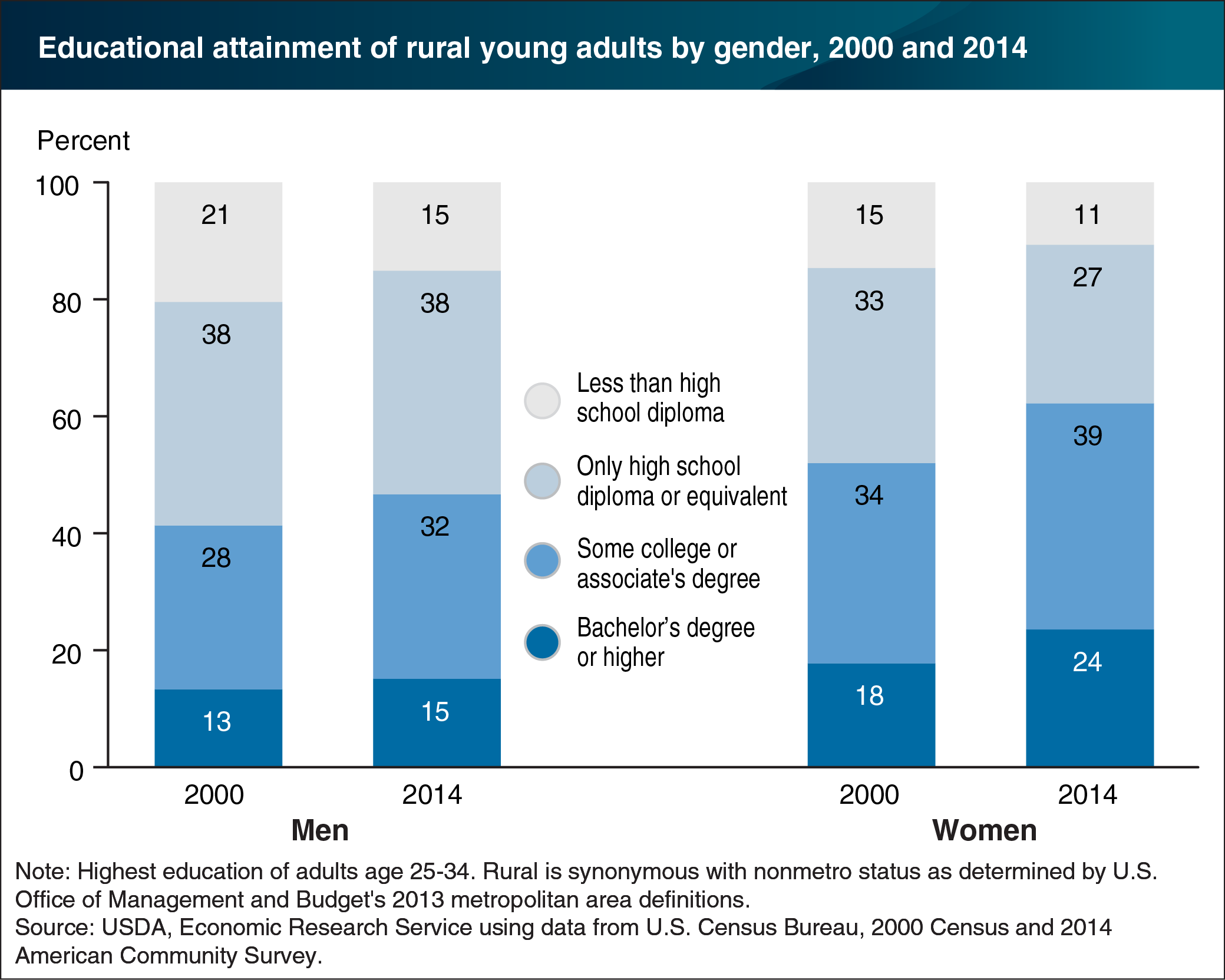Rural women, especially young women, are more likely than rural men to have college degrees
- by Alexander Marré
- 3/30/2016

The education of workers is closely linked with economic success. Workers with educations beyond high school degrees are more likely to be employed and earning higher wages than workers with high school degrees or less education. Educational attainment of both men and women in rural areas has grown over time, and rural women are more likely to have some college experience or hold associate or bachelor’s degrees than rural men. For example, the most recent (2014) American Community Survey shows that 63 percent of rural young women (age 25-34) had schooling beyond a high school diploma, compared with less than half (47 percent) of rural young men; nearly a quarter of rural young women held a bachelor’s degree or higher. The gender-education gap beyond a high school diploma for rural young adults has widened, from 11 percentage points in 2000 to 16 percentage points in 2014. This gap is more pronounced in rural areas than in the nation as a whole. This chart is based on the ERS Rural Employment & Education topic page.


